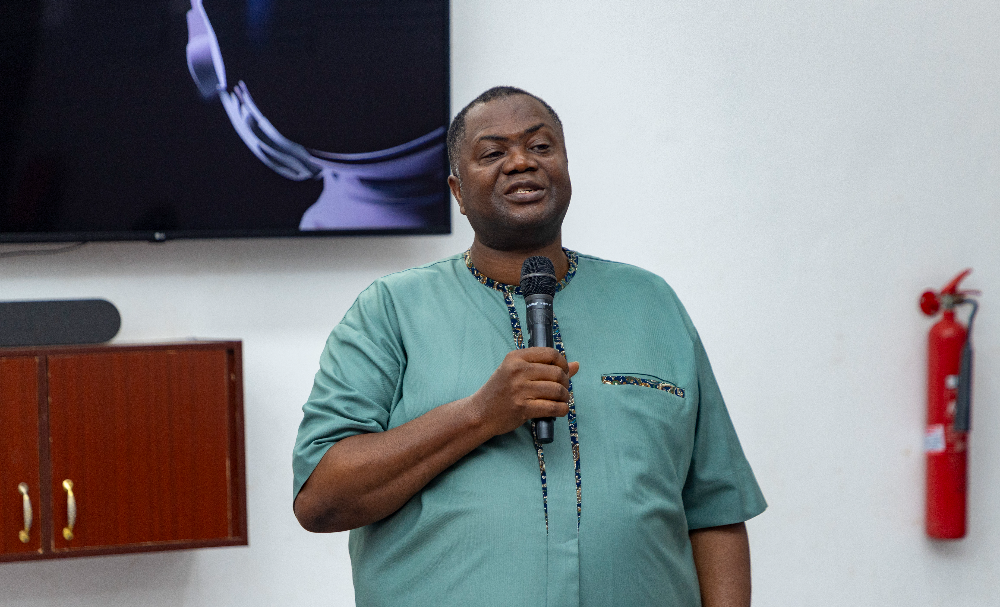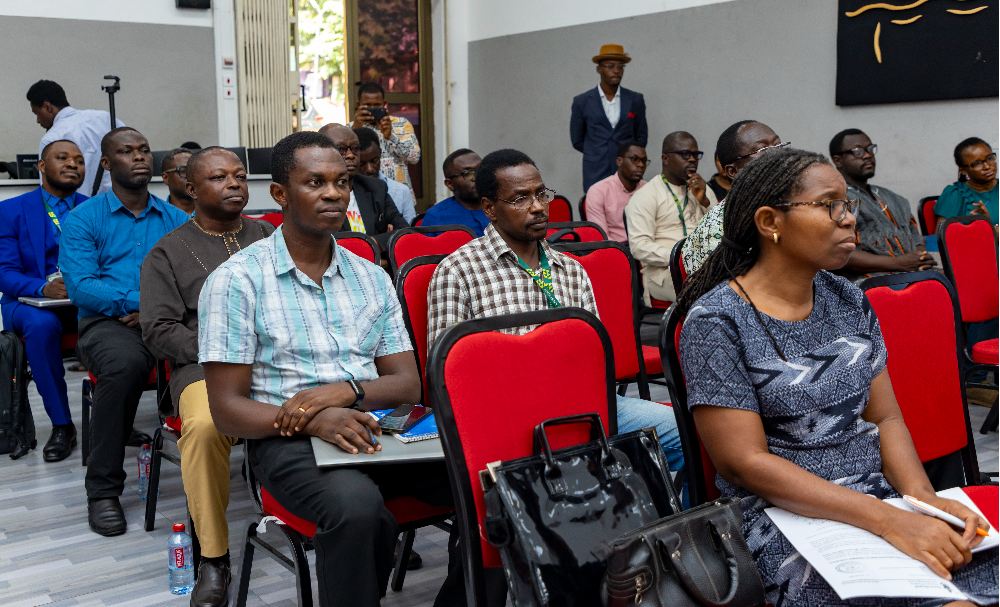The Colleges of Agriculture and Natural Resources, Humanities and Social Sciences and Science have kicked off the University's 1 Department 1 Startup (1D1S) initiative.
This move, which falls under the Vice-Chancellor's vision to promote entrepreneurship across the university environment, aims to provide an opportunity for departments to share their innovative concepts and collaborate towards creating sustainable startups.
Speaking at a workshop at the Amonoo Neizar Conference room, Provost of the College of Agriculture and Natural Resources, Professor Dadson Awunyo-Vitor, emphasized the importance of creating jobs to shape the curriculum.
"We teach entrepreneurship, and every student, in one way or another, takes entrepreneurial courses. But when we tell them to create jobs, it becomes difficult to understand," he said. "They've been here for four years, and now we're asking them to create jobs."
He stressed that the creation of startups could be the turning point, offering students the opportunity to gain the support they need, build a name, and access training from industry experts.
"The student will also realize that once they finish school they can equally engage in this kind of business," he said.
Professor Awunyo-Vitor also highlighted the need for the university to find sustainable ways of raise funds.

He advocated that the 1D1S initiative should be embraced by all departments and stated that his college (CANR) is ready and willing to support other colleges.
Dr. Samuel Yaw Akomea, Head of the Centre for Business Development (CBD) at KNUST, shared his vision for the 1D1S initiative, underscoring the need for innovative ideas that align with the university's departments.
"We want an innovative idea which is at least in line with one of the areas in your department. The idea of 1D1S is to create viable businesses that are real businesses," he explained.
He also highlighted the importance of starting small and growing sustainably.
"We need humble beginnings where we can find some money to support and as you grow, then you generate funds from your organization, form partnerships among others."

He added: "If we need to employ a manager to take care of it, we need to do that. These businesses will be registered as business models, not as appendages of the department. We don't want a situation where an HOD changes and everything changes. We want the business to be a separate legal entity operating and making the necessary decisions.”

















